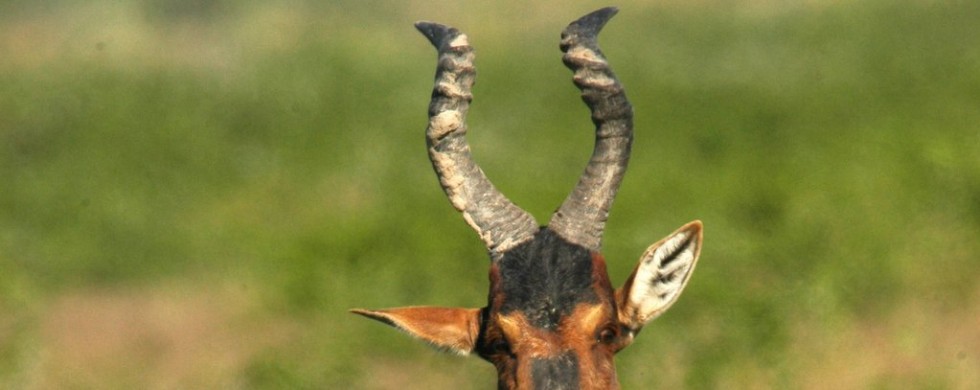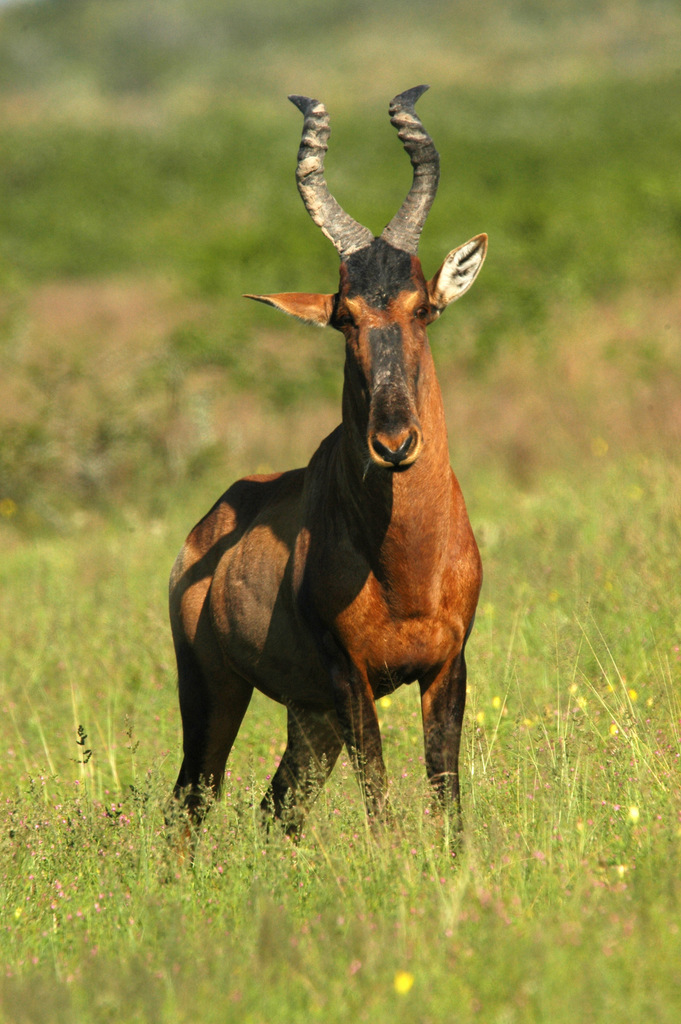
15
2011Hartebeest – October 2011
Shot of the Month – October 2011.
Is it just me or when you read the name of this antelope does it make you think of a bumper sticker that might look something like:
Yeah, ok. Probably just me.
(For those of you playing at home, the “beast” in my bumper sticker is Dr. Henry Philip “Hank” McCoy, the Beast from the X-men comics.)
I grant you that the hartebeest is a bit odd looking but the reviews out there are tough. One site said that hartebeests are “ungainly antelopes, readily identified by the combination of large shoulders, a sloping back, a glossy red-brown coat and smallish horns in both sexes.” Another commenter said that the hartebeest, “ …at first glance seems strangely put together and less elegant than other antelopes.” Yes, all true, but not something we really say in polite company.
The taxonomy of this grass eater is complicated as it seems to be for many animals. There are about 6 sub-species and 2 separate species of hartebeest spread out in generally isolated pockets across Africa.
Roll call:
Subspecies: (this might be a good time to break out your atlas)
- Bubal Hartebeest: They used to live in Algeria, Egypt, Libya, Morocco and Tunisia. Yes, used to. We killed the last one around 1923. (Extinct)
- Coke’s Hartebeest: Found in Kenya and Tanzania
- Lelwel Hartebeest: Found in Central African Republic, Chad, Democratic Republic of Congo, Ethiopia, Kenya, Tanzania, Uganda (Endangered)
- Western Hartebeest: Found in limited numbers in West Africa (Benin, Burkina Faso, Cameroon, Central African Republic, Chad, Cote d’Ivoire, Ghana, Guinea, Guinea-Bissau, Mali, Niger, Nigeria, Senegal, and Togo.
- Swayne’s Hartebeest: Ethiopia (Endangered); Somalia (Extirpated)
- Tora Hartebeest: Found in Eritrea and Ethiopia (Critically Endangered); Sudan (Extirpated)
Separate Species:
- Red Hartebeest: Found in Namibia, Botswana, South Africa
- Lichtenstein’s Hartebeest: Found in Malawi, Mozambique, Tanzania, Zambia, Zimbabwe
I photographed this Red Hartebeest in the Makgadikgadi Pans National Park in Botswana.
So what is the difference between a species and sub-species? Animals from different subspecies (of the same species) are capable of inbreeding and producing fertile offspring. They usually don’t interbreed due to geographic isolation. For example, Coke’s Hartebeest, the most prevalent version found in Kenya and Tanzania, could breed with Swayne’s Hartebeest, found only in Ethiopia, but they don’t as their territories do not overlap and these antelope do not move around much.
I think the hartebeests have developed a bit of chip on their shoulder about what us humans have been saying about them. Time for a little payback from a Red Hartebeest. (Note: A male hartebeest can weigh up to 350 pounds).
Follow this link
http://www.youtube.com/watch?v=S2oymHHyV1M
or watch here:
Ouch. How is that for elegance? Now that’s one badass even-toed ungulate.
Until next month…. J


